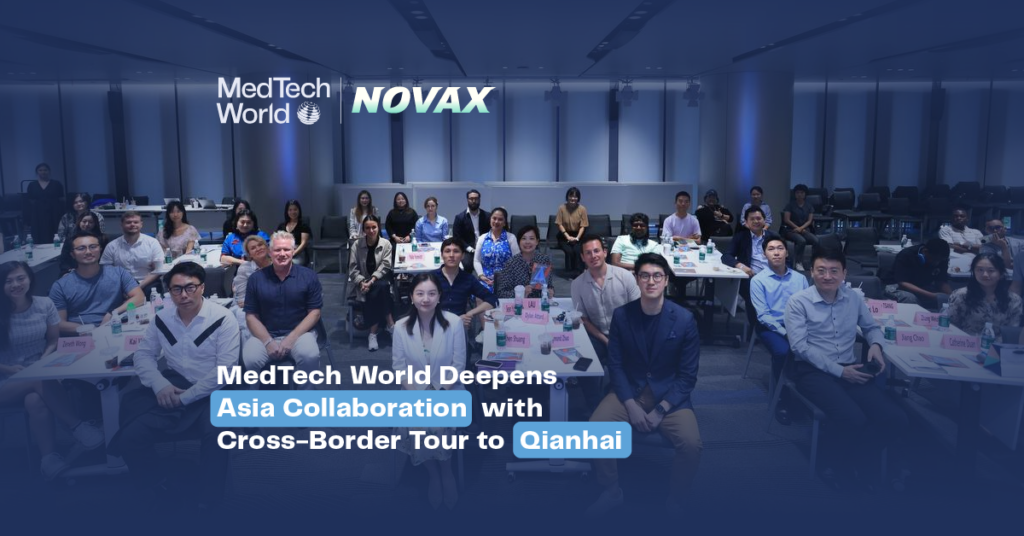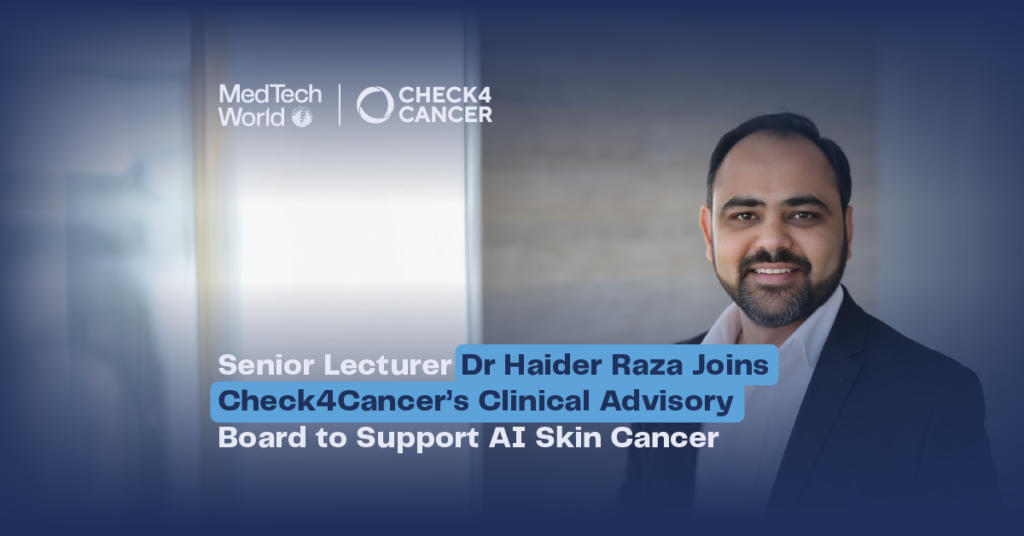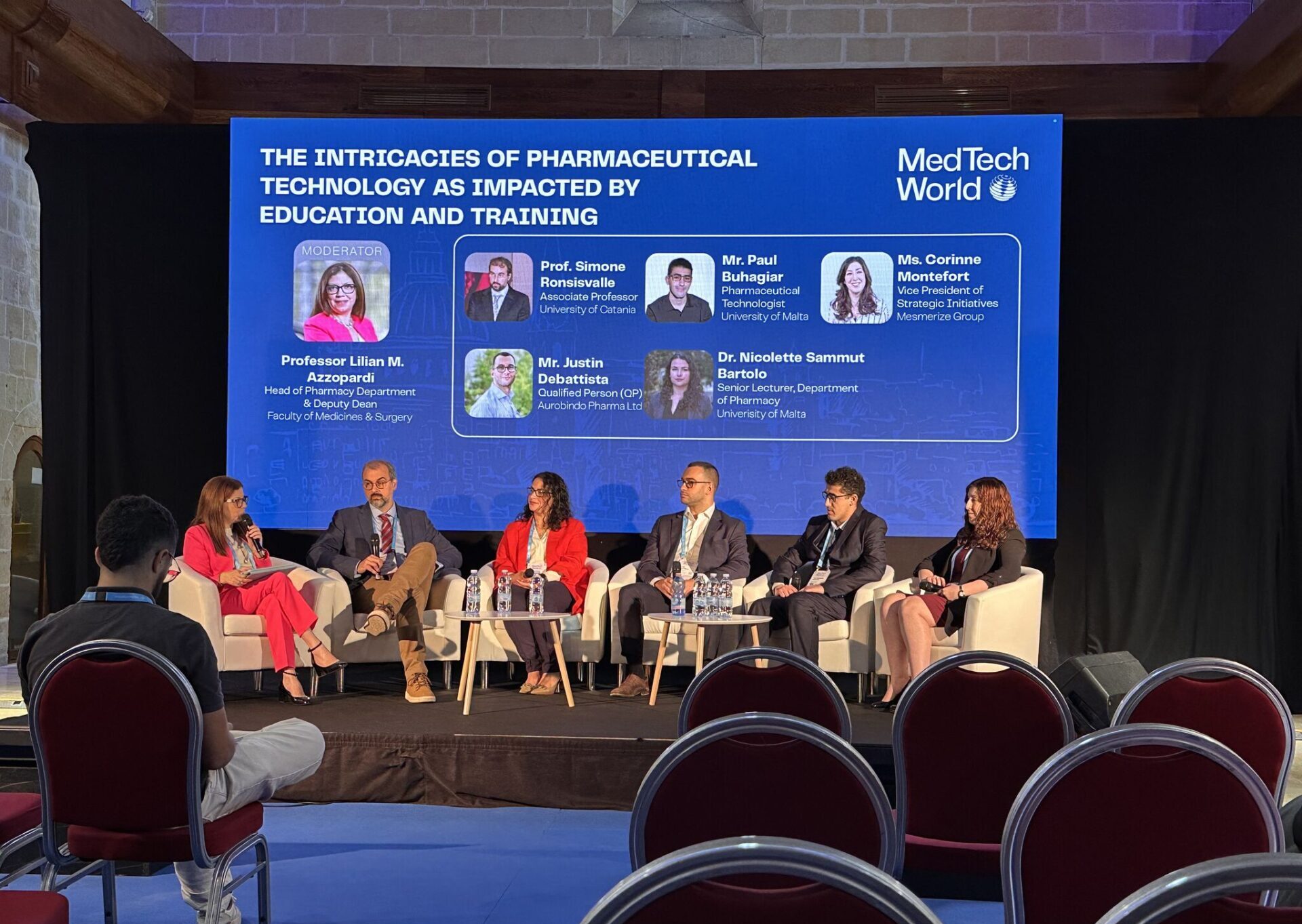
Wara Samar
31st December 2024
Education Meets Innovation: The University of Malta at MedTech Malta 2024
Earlier this November, MedTech Malta 2024 showcased a series of groundbreaking keynotes and a thought-provoking panel discussion supported by the University of Malta. These sessions highlighted the transformative potential of cutting-edge research, technology, and education in shaping the future of healthcare and pharmaceutical sciences.
Signalomics in Regulatory Sciences
Professor Anthony Serracino Inglott from the Pharmacy Department, University of Malta, delivered a keynote titled “Signalomics in Regulatory Sciences.” He explored the evolution of signal management in regulatory sciences within the context of a patient-centered ethos grounded in quality, safety, efficacy, accessibility, and environmental considerations. He emphasized the shift from viewing signals as perceptions to establishing them as a robust evidence-based science, stating, “The idea is to develop signals from a perception into a science through the establishment of a robust evidence-based signal management system.” The presentation highlighted studies, including Benjamin Micallef’s work on COVID-19 vaccine signals, which underscored the critical role of signals during rapid vaccine development, and Adriana Spiteri’s research on linking quality control signals to actual occurrences. Another key study by Paula Cardona Xuereb analyzed 107 medical device-related incidents, proposing a scientific approach to act on signals before incidents occur. The professor concluded by inviting collaboration in this newly developing science, emphasizing that advancing signalomics requires joint efforts to refine tools and approaches for proactive regulatory action.
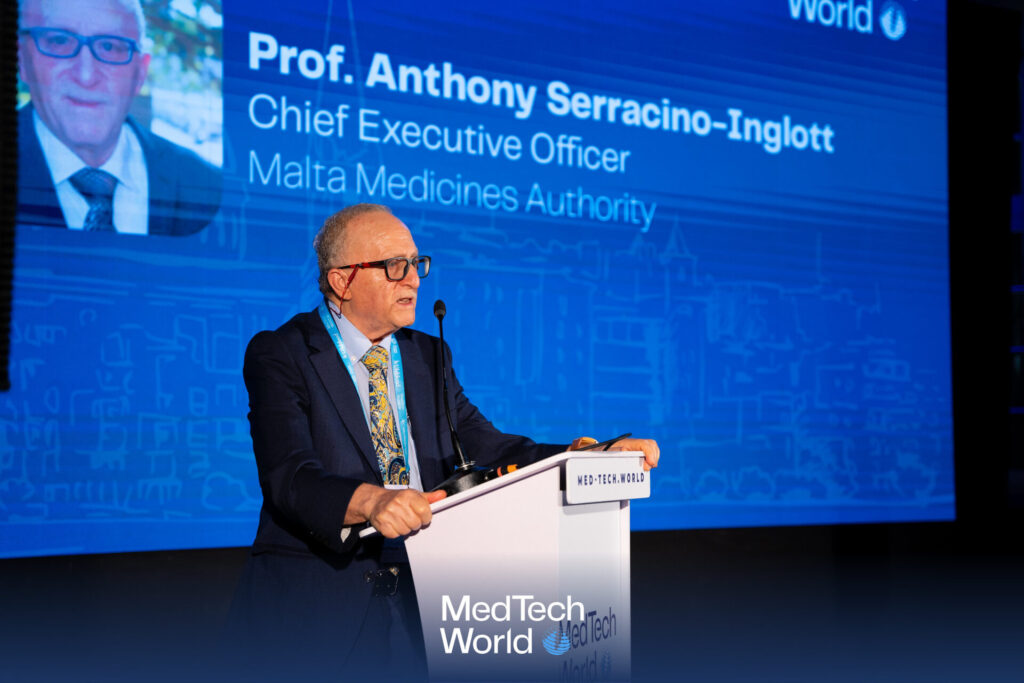
A Green Approach to Pharmaceutical Technology
Dr. Nicolette Sammut Bartolo, Senior Lecturer at the University of Malta’s Department of Pharmacy, delivered a keynote on “A Green Approach to Pharmaceutical Technology”, highlighting the pressing need to reduce the environmental impact of pharmaceutical processes. She noted that the healthcare sector contributes up to 5% of global greenhouse gas emissions, with each step of the pharmaceutical supply chain—from the synthesis of active pharmaceutical ingredients, where up to 90% of the mass becomes waste, to the release of unused oral dosage forms into the environment—leaving a significant footprint. Dr. Sammut Bartolo emphasized initiatives like the United Nations’ Sustainable Development Goals, the International Federation of Pharmacy’s guidelines, and the 12 principles of green chemistry, which advocate for waste reduction, greener solvents, and energy-efficient processes. She showcased research by her department’s Green Pharmacy Research Group, which developed more sustainable manufacturing methods for steroids, achieving higher yields with reduced energy use and waste. Additionally, she discussed tools like solvent selection guides and metrics such as the E-factor and atom economy to quantify environmental impacts. Despite challenges in balancing greenness with practicality, she underscored the importance of continued efforts, stating, “The most important thing is that we do not give up. We take steps and contribute towards a greener environment and greener processes.”
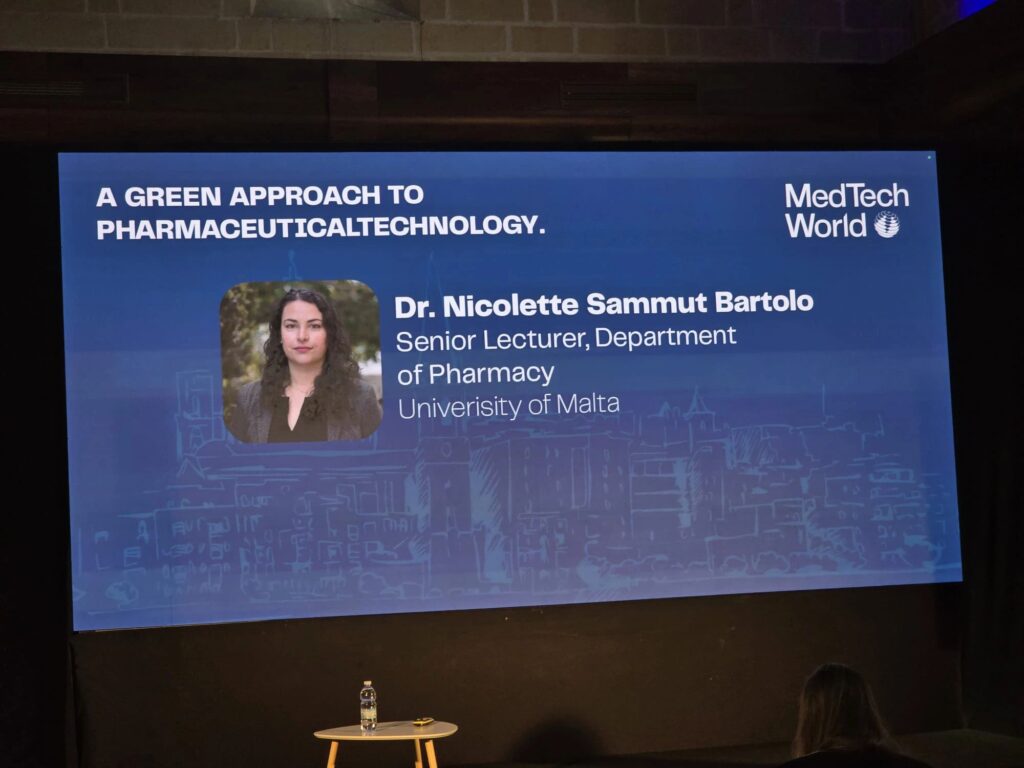
Overcoming Barriers to AI and Immersive Technology
Ms. Corinne Montefort, Vice President of Strategic Initiatives at Mesmerise Group, delivered an inspiring address on “Unlocking the Future of Healthcare: Overcoming Barriers to AI and Immersive Technology Adoption.” She envisioned a future where innovation transforms healthcare into a universally accessible and deeply personalized system, achieving better patient outcomes and operational efficiencies. However, she emphasized that disruption brings challenges, including data privacy concerns, ethical dilemmas, integration with legacy systems, and the digital divide. Montefort highlighted the need for collaboration among stakeholders, education for healthcare professionals and patients, and careful planning to address these barriers. She urged for the adoption of industry-wide standards like the EU AI Act, the creation of new interdisciplinary roles, and the gradual implementation of AI and immersive technologies. Concluding with optimism, she stated, “The time for transformation is now, and together we can lead that change.”
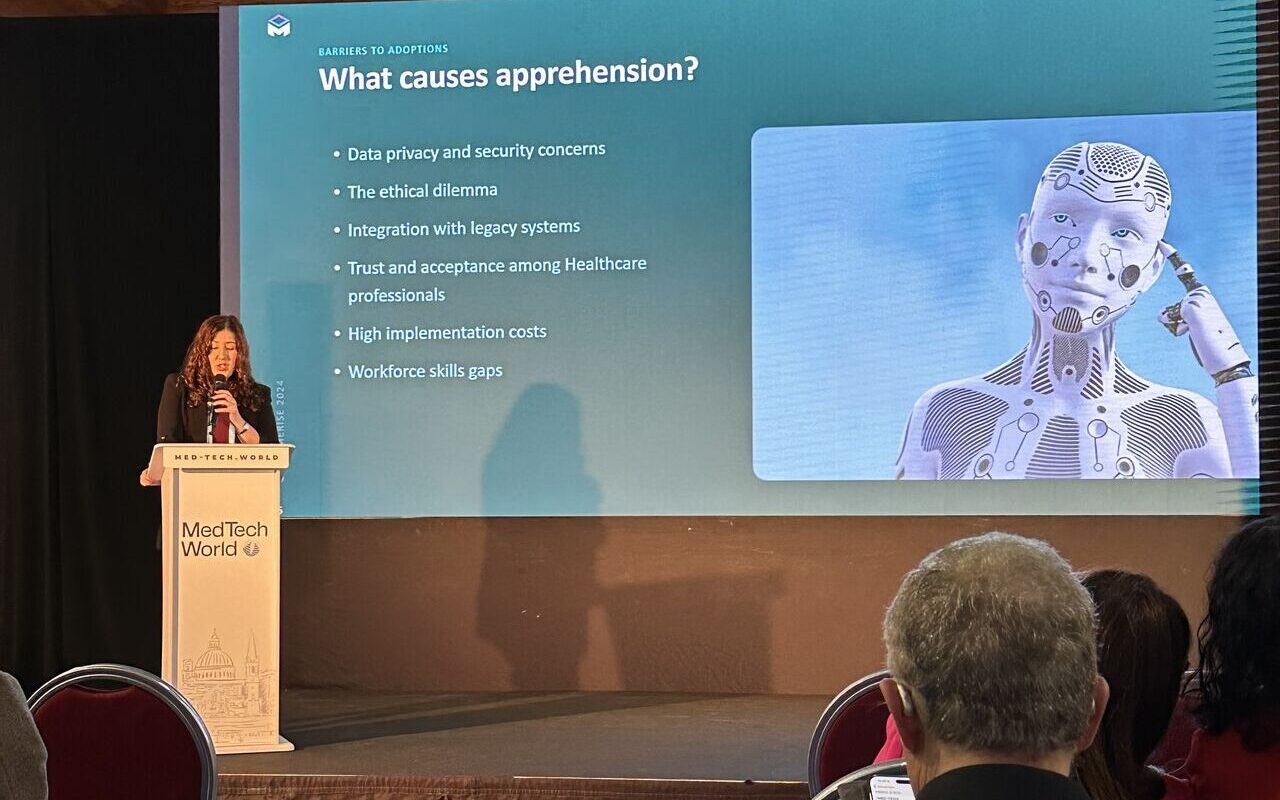
Bridging Education and Technology: The Panel Discussion
The panel discussion titled “The Intricacies of Pharmaceutical Technology as Impacted by Education and Training” explored the evolving educational needs in the context of rapidly advancing pharmaceutical technologies. Moderated by Professor Lilian M. Azzopardi, Head of Pharmacy Department & Deputy Dean, Faculty of Medicines & Surgery; the panel included Dr. Nicolette Sammut Bartolo, Senior Lecturer, Department of Pharmacy, University of Malta; Mr. Paul Buhagiar, Pharmaceutical Technologist, University of Malta; Ms. Corinne Montefort, Vice President of Strategic Initiatives, Mesmerise Group; Mr. Justin Debattista, Qualified Person (QP), Aurobindo Pharma Ltd; and Professor Simone Ronsisvalle, Associate Professor, University of Catania. A key theme was the importance of equipping students not only with technical knowledge but also with adaptable skills to stay current with innovations like artificial intelligence, statistical tools, and advanced data analytics. Panelists highlighted the challenge of teaching AI effectively, given the complexity and evolving nature of the technology. They emphasized the need for educators to understand these tools themselves and integrate their applications into the curriculum while ensuring students grasp both their capabilities and limitations.
Another prominent point was the value of experiential learning, such as placements and industry collaborations, which bridges the gap between theoretical knowledge and real-world application. This approach was seen as critical for fostering problem-solving and critical-thinking skills, essential for addressing daily challenges in the pharmaceutical industry. The discussion also touched on the transition from small molecules to biologics and advanced therapeutic products, underscoring the necessity for interdisciplinary collaboration and ethical considerations, such as addressing biases in AI datasets and ensuring diversity in clinical trials. Overall, the panel called for a proactive alignment of education and training with industry needs, fostering a workforce ready for the next-generation medicines.
Takeaway
MedTech Malta 2024 demonstrated the University of Malta’s pivotal role in advancing regulatory sciences, green pharmaceutical practices, and healthcare innovation. Through insightful keynotes and collaborative discussions, the event reinforced the importance of aligning education, research, and industry to meet the challenges and opportunities of modern healthcare.
Get Ready for MedTech World Dubai 2025!
The countdown is on for MedTech World’s first event of 2025: MedTech World Dubai! Be part of the action as global innovators and healthcare leaders come together to explore groundbreaking advancements and transformative ideas. Whether your goal is to grow your network, discover state-of-the-art technologies, or pursue exciting collaborations, MedTech World Dubai is your gateway to innovation in healthcare. Don’t wait—reserve your spot today and lock in your place before prices increase!



